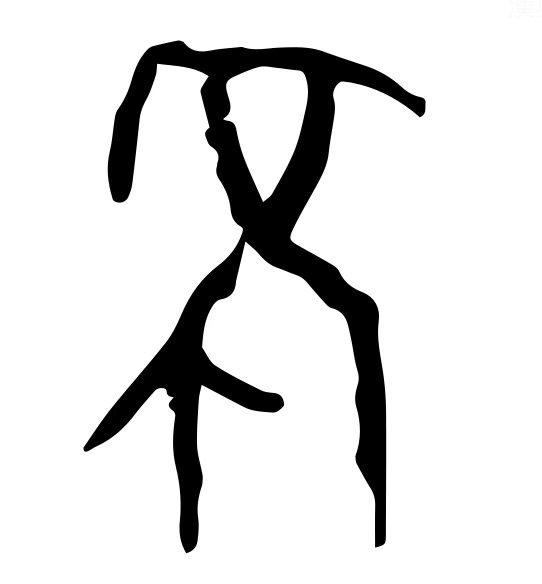GuZhe 瞽者
Blind Man, Ancient Musician, Daoist Wanderer
Introduction
Over the past few decades, I have kept coming back to the idea writing an autobiography. I am drawn to share more personal and unique insights into ancient Chinese wisdom traditions through my life stories. However, my family, my teaching, and my other writings keep me pretty busy, so it has been hard to make the time to start this new project.
After I started writing on Substack, I realized that as long as I have a chunk of quiet time, I can actually write an entire article on my phone using my one thumb to type. I no longer have to lug my computer around and plan ahead to carve out a long writing session. At this moment, during a teaching trip in southern France, I finally have had clear inspiration that GuZhe 瞽者 will be the title of my new writing project. I have decided that I will share my autobiography in installments, as a new series via Substack, as I continue writing on the Yijing Eight Palaces.
Following the typical way I write about Chinese wisdom traditions, I would like to explain why I have chosen this title by interpreting the two Chinese characters for you:
Gu literally means blind and Zhe means that which, he who, or those who. Together, GuZhe means a blind person or those who are blind. However, with further study into the Gu character, we can glean more information about the deeper meaning of GuZhe.
Let’s check the structure of Gu 瞽. On the first glimpse, we can see it is made with top radical Gu 鼓 for drum and bottom radical Mu 目 for eye. You might be curious about the relationship between a blind man and a drum.
In ancient China, the best drummers were blind men because of their keen sense of hearing and advanced ability to absorb into and perform their music. Gu 瞽 was originally created as the symbol for blind people and also represents ancient Chinese musicians.
In Chinese wisdom traditions, music represents harmony. For thousands of years, we have applied musical pitches to interpret different qualities of Qi or energies of nature and the body. I delve into this “blind man” frame of mind, tuning myself into a harmonious state, during all the forms my cultivation practice takes - Qigong, calligraphy, GuQin, Yijing consultations, or simply drinking tea. This is one of the reasons I chose Gu for the title.
As always, I meditate with JiaGuWen 甲骨文, the ancient oracle bone style written symbol, when I like to deepen my understanding of a Chinese word. Below is the ancient oracle bone image of Gu.
Upon meditating with this image, I had a clear vision of a person holding a stick, and I immediately recalled a meditation years ago, in which I sat with another oracle bone character, Lao 老 for old, senior, seasoned people, or wise.
Twenty years ago, in the first edition of my book, The Vital Breath of the Dao, I wrote this about Lao 老:
The written pattern of the oracle bone character for Lao resembles a person holding a staff.
In Chinese shamanism, a staff represents the power of the universe. Armed with a staff, a shaman had the power to pass on universal knowledge to others. The first time I looked at this oldest style of Chinese character, an image arose in my mind’s eye: the Queen Mother of the West (XiWangMu 西王母) standing on the top of Kunlun Mountain, holding the victory staff in her hand.
In Daoist tradition, we regard the Queen Mother of the West as the original ancestor of the Daoist teachings, and LaoZi 老子, the author of the Daoist canon DaoDeJing 道德經, was the principal disciple of her. And the Daoist teachings have been commonly attributed to LaoZi, which is called LaoXue老學, the teachings of the Lao 老.
After making this connection between the Gu and Lao during my meditation, I had another image, one of a blind Daoist master, walking around the world with his stick. It is for this reason that I also interpret GuZhe as Daoist wanderer.
Now that we have taken a scholarly look into the meanings of GuZhe, I’d like the share a more personal reason for me to have chosen this title. Shortly after I was born, my mother gave me the nickname Blindman. According to her, I kept my eyes mostly closed until I was almost two years old.
Stay tuned for the next installment of my story, GuZhe.







I love that you have found time in your busy schedule to share your story Master Wu. And with so much teachings along with it, of course. 💜 Lookings forward to the next installment. Safe travels to the Daoist Wanderer
Amazing synchronicities and teachings on the daoist path ...!